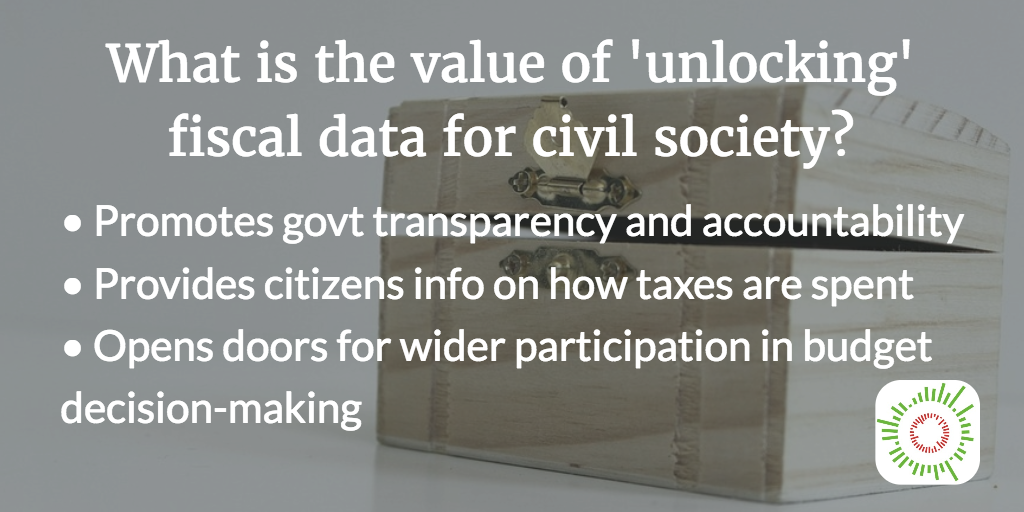OpenSpending is one of Open Knowledge International’s current projects. It is a free and open platform for citizens looking to track and analyse public fiscal information globally.
Over the years, we have learned about numerous examples of fiscal data uses from the OpenSpending community. Also, we learned that obtaining fiscal data can be the most difficult part in making data available to the public. We reached out to the community and collected a few examples on “unlocking” fiscal data.
Dónde van mis impuestos (Where are my taxes), Spain
This microsite is the work of Civio, a Spanish non-profit organisation that develops tools to unlock the civic value of data and thus promote transparency. Their project “Donde van mis impuestos” allows citizens to track how their tax money is being spent. First, the Civio team downloaded the information in HTML from the Treasury’s website. Data was separated in thousands of small files, breaking down the budget across a number of different dimensions. To finalize the data mining, the team parsed, consolidated and cleaned the raw data.

After launching the website, Civio received requests from regional and local public administrations in Spain. Now, the project is collaborating with about 15 local public administrations all across Spain to develop custom versions of the site for them. At this stage, the authorities provide the data in Excel format, whereas previously this data was only available in PDF format.
The team is using the website as leverage to convince authorities to release the data in open formats, also ensuring access to execution data every month or quarter, even lists of payments to third parties. Most recently, they created a website for Barcelona and the region of Baleares, and are now working on a website for Madrid.
Offenerhaushalt.at, Centre for Public Administration Research and OK Austria
The Austrian open spending portal www.offenerhaushalt.at holds spending and budget data of all Austrian municipalities. The spending data from all 2100 municipalities in Austria was acquired from the National Bureau of Statistics in Austria. Due to legal reasons, the team is only allowed to publish the data of those municipalities who agree. Therefore, the team has sent login details to all mayors. More than 910 municipalities have – with two simple clicks – made this data available on the platform. The platform is free of charge for the municipalities.

70% of the Austrian population live in a municipality that is part of OpenSpending Austria, Approximately 85% of the municipalities with more than 10,000 inhabitants use the platform.
See more at https://www.offenerhaushalt.at/english-information
Examples from a few other countries
Sinar Project, Malaysia:
- Filed a Freedom of Information (FOI) request
- Went into meetings with authorities to make the case for open fiscal data
Metamorphosis Foundation for Internet and Society, Macedonia:
- Partnered with other civil society organizations in the country which work closely with the municipalities. These organizations were willing to share the data that they had already collected
- Scraped the data from the website of the Ministry of Finance
AfroLeadership, Cameroon:
- Organized information workshops to present the necessity of involving citizens in the budget cycle to diverse stakeholders (Mayors, Supreme Audit Institutions, Civil Society Organizations, Journalists, etc.)
- Scraped the PDF file from the Ministry of Finance website;
- Discussed with the Direction of the budget and the Direction of public procurement to have extracts from the database
- Signed letters of commitment with the authorities to have access to fiscal data
What is your experience? Please share your example of “unlocking” fiscal data here: https://discuss.okfn.org/t/your-experiences-in-obtaining-fiscal-data/3668
To browse existing datasets and to upload your data, visit OpenSpending. For questions, OpenSpending team is available via OpenSpending discussion forum, on Gitter.im in the OpenSpending chat room, or on the OpenSpending issue tracker.
Open Spending Community lead








